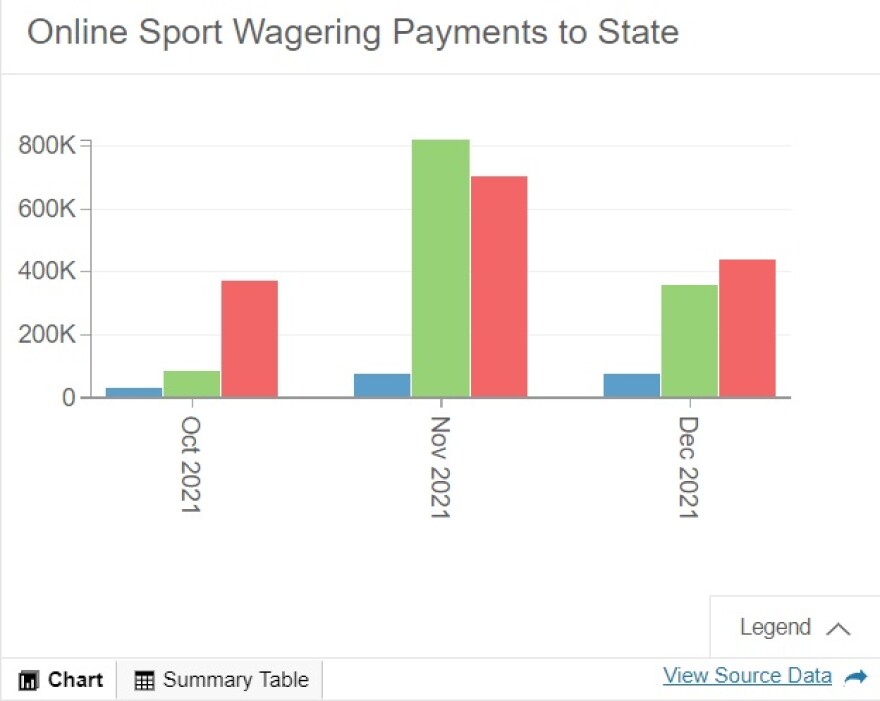The state continues to derive a larger share of revenue from online casino gaming than sports betting. That’s according to December gaming revenue statistics released this week by the Connecticut Department of Consumer Protection.
Gambling expanded in Connecticut in the fall to include sports betting (both retail and online) and online casino gaming. Since the first legal bet in Connecticut was placed on Sept. 30, one revenue stream — the iCasino — has outperformed the other.
“Mohegan Digital continues to be impressed with our online gaming performance,” said Rich Roberts, president of Mohegan Digital for Mohegan Gaming and Entertainment. The Mohegan Tribal Nation is one of the two tribal nations that offer online casino gaming in Connecticut.
“The Connecticut market is still in its very early stages and we certainly see room for growth across 2022,” Roberts said.
Mohegan Digital had $1,284,547 in taxable revenue from its iGaming operation in December. It wasn’t as much as that of the Mashantucket Pequots, the tribal nation that runs Foxwoods Resort Casino. The Mashantucket Pequots’ online platform, which is managed by FanDuel, made $1,655,986 for the state.

The online casino gaming figures for the two tribes were both higher than the previous two months. While taxable iCasino revenue continues to grow for the state, the take from online and retail sports betting seems to have peaked in November.
The Mashantucket Pequots led the way in taxable sports betting revenue in December, but its tax payment on online sports wagering was $265,546 less than in November. The dip in tax money on the Mohegan tribe’s online betting revenue was more dramatic — more than 50% from November’s $819,799 figure.
The only improvement from November to December in the state’s take from online sports betting came from the Connecticut Lottery Corporation. But growth was slight: $784.

The Mashantucket Pequot Tribal Nation and the Connecticut Lottery were not available for comment on Thursday.
Only the Connecticut Lottery is taxed on brick-and-mortar sports betting. Revenues dropped from $112,314 in November to $54,457 in December. Both of those monthly figures don’t represent the actual amount owed to the state. The figures are sort of preliminary; they represent only a percentage of total revenue.

The Connecticut Lottery Corporation operates sports betting on behalf of the state, so it’ll return all revenue to the state’s general fund, minus expenses.





